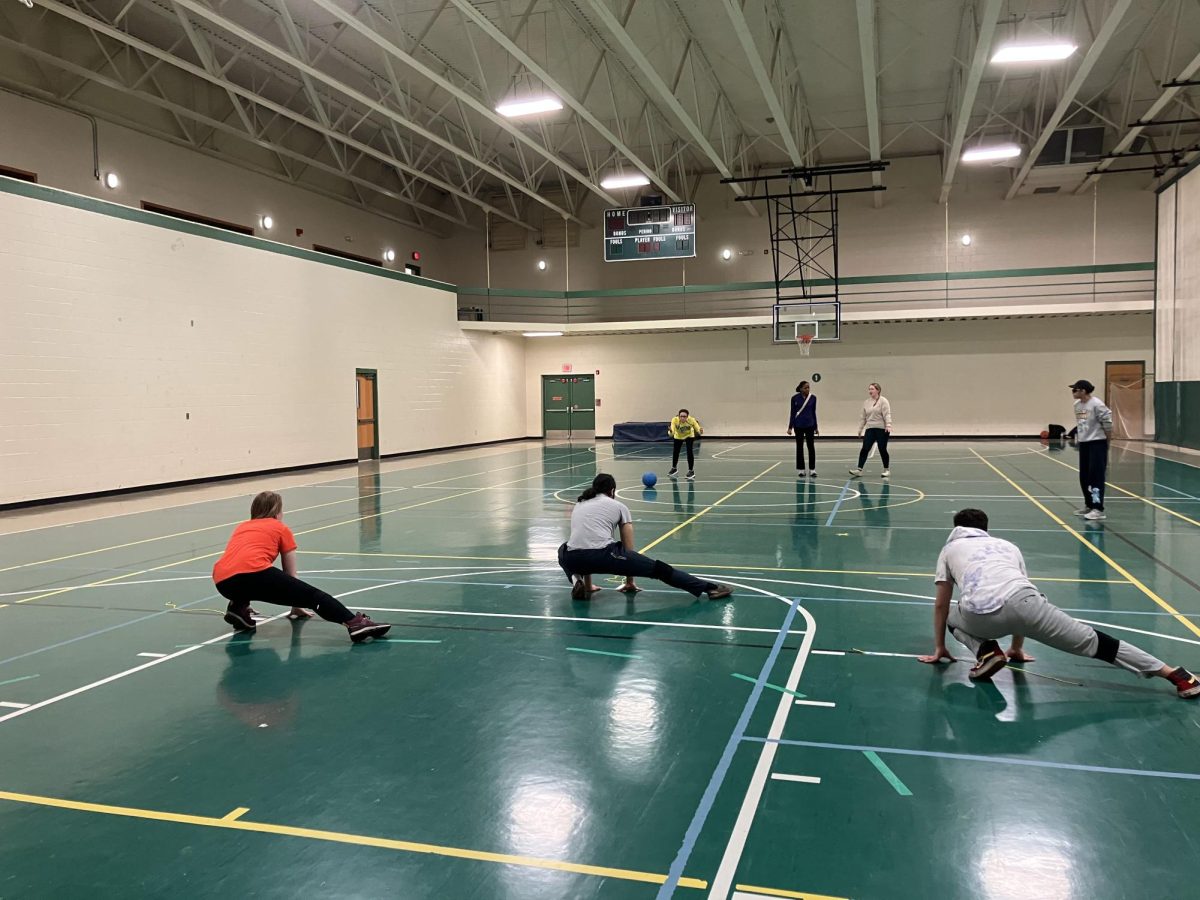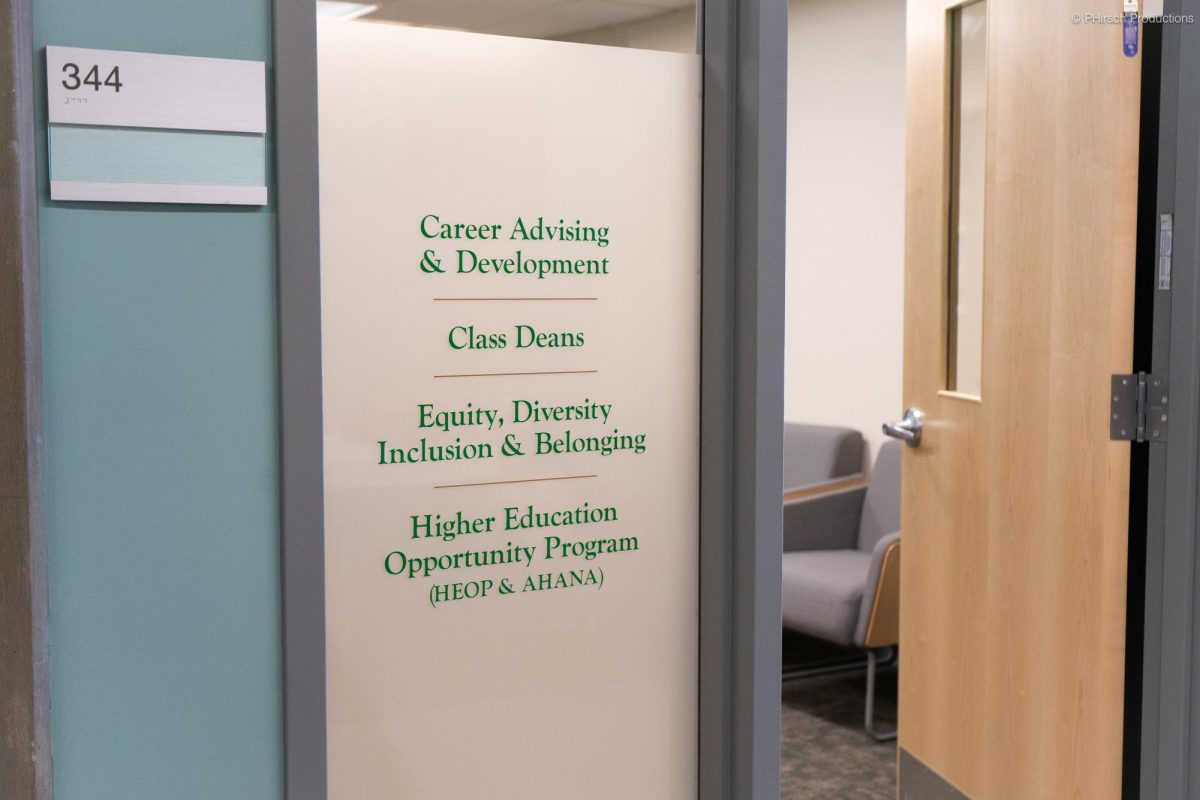On October 18th, Le Moyne unveiled its new Gender, Women, and Sexuality Center in Reilly Hall. The event was organized by Dr. Farha Ternikar, the Director of the Gender, Women, and Sexuality Studies Program, in collaboration with PRISM, the Office of Equity, Diversity, Inclusion & Belonging, the Gender and Women’s Studies Club, and the Sociology Club, which celebrated the revitalization of the Women and Gender Studies program which now officially recognizes sexuality within its curriculum.
“This is not just a name change for the program,” explains Ternikar. “Many students requested this change, and the program is always evolving to address students’ needs and interests as a part of our social justice mission for every student to feel safe and supported.”
As a part of this mission, the program is currently paving the way for new courses at Le Moyne for interested students. Among these courses are Philosophy and Sexuality, taught by Dr. Ludger Viefheus-Bailey, and Sex, Gender, and Criminology, taught by Professor Heather Cleary. These courses will be offered throughout 2024 and 2025, with another course on transgender studies being offered further in the future.
The event included multiple engaging discussions about gender and sexuality, the first of which was held by Dr. Ludger Viefheus-Bailey, a department chair and philosophy professor at Le Moyne. His talk emphasized the importance of liberal arts in the study of sexuality, which he argues is inherently interdisciplinary and sociologically-based. This perspective recognizes the many complexities of human sexuality and stresses the need to incorporate the natural and societal implications of both — which is a notable focus of the new programming.
The next speaker, Dr. Heather Cleary, an assistant criminology professor at Le Moyne, discussed queer theory and its perspective within our current power structures and criminal justice system. She explained how one of the focal points of this new programming is to cultivate an understanding of the importance of intersectionality in identity, as it is crucial in examining what is happening in our modern world and the sociological issues that arise within it. She also expanded on the skills that will be cultivated within the program.
“It will give students the tools necessary to engage in informed citizenry, undergoing a dialogue with themselves to enhance their critical thinking and empathy in our hyper-mediated world — which is more politicized and sexualized than ever before,” Cleary and Ludger explained.
The last of the speakers was Dr. Nell Champoux, a professor of theology at Le Moyne, who talked about the relationship between religion and sexuality. “We often notice the “no’s” within religion but it’s important to focus on the “yes” — where sexuality and gender are celebrated and affirmed under religions” she commented, discussing the ambiguity and complexity of religions when it comes to gender and sexuality.
Including diverse perspectives in the new program will reportedly allow religious and philosophical beliefs to broaden students’ understanding of these topics. Through critically evaluating what we consider “normal” and the foundation of these beliefs themselves, we are able to celebrate the “delightful strangeness” within each of ourselves according to Dr. Champoux.
As the center looks ahead, it aims not only to revise its curriculum but also to increase its collaboration with student organizations, Dr. Ternikar added. One of these collaborative efforts is to create a dedicated safe space and resource center for students on campus in collaboration with the Office of Equity and Inclusion and PRISM. The new center also plans on creating more programming and events with student interests and involvement in mind.
This change marks a milestone within Le Moyne’s community and its commitment to diversity and inclusion on campus as the staff behind the new Gender, Women, and Sexuality Center aim to foster an environment where student concerns and perspectives are not only acknowledged but celebrated.





